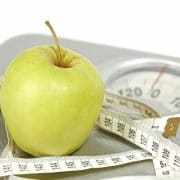Can Bariatric Surgery Help Diabetes?
There’s a huge misconception that people still need to take their insulin and other obesity medications after they’ve undergone bariatric surgery in New York. However, there’s actually a good chance that you’ll be able to ditch those pill bottles (after speaking with your doctor, of course) because along with reducing weight, bariatric surgery can actually help change your body’s chemistry. In fact, after gastric bypass surgery, 80 percent of patients with diabetes go into remission, and that means no more medication.
Many Diabetics Can Stop Taking Medication After Bariatric Surgery
One of the biggest benefits of bariatric surgery isn’t just weight loss; Type 2 diabetes is also significantly improved in most people. How does this happen? What changes in your body?
Bariatric Surgery Causes Your Hormones To Go Up And Down After Surgery
During two of the most common forms of bariatric surgery in New York, either part of the stomach is removed or the digestive tract is rearranged. This alters the amount of hormones released by your gut.
GLP-1
GLP-1 is a hormone produced in your intestines and normally spikes right after you’ve had a meal. What is it’s purpose? To help insulin move glucose out of your bloodstream and into your cells. However, in those who are obese, GLP-1 doesn’t spike like it is supposed to after you eat. After bariatric surgery, your GLP-1 levels go up dramatically following a meal, meaning more help for insulin and glucose regulation. A lot of people are able to come off their diabetes medication right after surgery, even before weight loss occurs. In fact, the American Diabetes Association recommends bariatric surgery as a top choice treatment for people who have a BMI higher than 35.
Do you suffer from obesity? Do you need help gaining control of your weight again? Call Weight Zen today and see how we can help you get a new lease on life: 212.203.2146.












